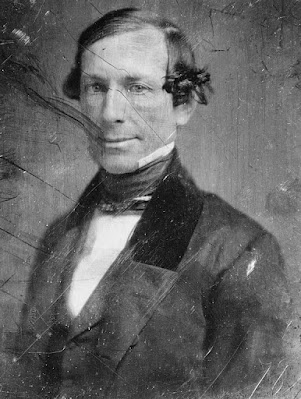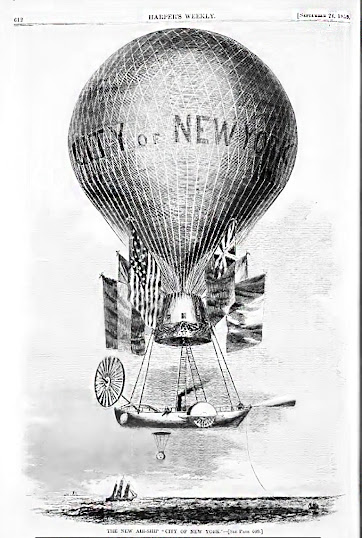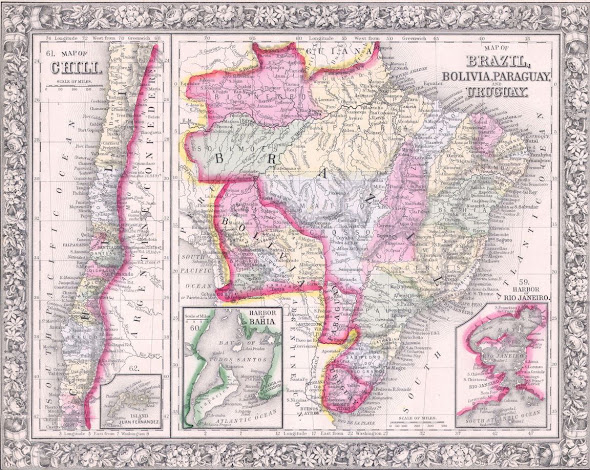New York City Votes on Secession -December 1860
New York City Will Also Secede!
New York City banks and other businesses were so entwined with Southern cotton planters, Mayor Fernando Wood persuaded the New York City Council to vote on seceding from the state of New York and the United States in December, 1860.
Mayor Fernando Wood, January 6, 1861
A statement by the mayor published in New York newspapers
"Much, no doubt, can be said in favor of the justice and policy of a separation. It may be said that Secession or revolution in any of the United States would be subversive of all Federal authority, and, so far as the central Government is concerned, the resolving of the community into its original elements - that, if part of the States form new combinations and Governments, other States may do the same. Then it may be said, why should not New York City, instead of supporting by her contributions in revenue two-thirds of the expenses of the United States, become also equally independent? As a Free City, with but nominal duty on imports, her local Government could be supported without taxation upon her people. Thus we could live free from taxes, and have cheap goods nearly duty free. In this she would have the whole and united support of the Southern States, as well as all the other States to whose interests and rights under the Constitution she has always been true.
It is well for individuals or communities to look every danger square in the face, and to meet it calmly and bravely. As dreadful as the severing of the bonds that have hitherto united the States has been in contemplation, it is now apparently a stern and inevitable fact. We have now to meet it, with all the consequences, whatever they may be. If the Confederacy is broken up the Government is dissolved, and it behooves every distinct community, as well as every individual, to take care of themselves.
When Disunion has become a fixed and certain fact, why may not New York disrupt the bands which bind her to a venal and corrupt master - to a people and a Party that have plundered her revenues, attempted to ruin her commerce, taken away the power of self-government, and destroyed the Confederacy of which she was the proud Empire City?
The city was the center of the slave trade. Banks made money holding cotton growers' loans, outfitting ships for slave trading missions, and a legal system tightly controlled to send any runaway slave caught sent back. Judges and police even made money by simply grabbing--kidnapping--free blacks off the street, charging them with being runaways and shipping them to Baltimore for a fee. For a while there was no legal requirement for any sort of legal hearing before they were sent South.
New York City's business community feared loss of Southern business would stop the engine of the growth of the city's wealth.
Free blacks in NYC had no right to vote, serve in public office, serve on a jury or even be admitted to the bar. In practical terms, they had no right to sue since no white lawyers would take on a black person's case. The general attitude of the city's white working and middle class was very racist even among the more liberal minded.
Initially, Fernando Wood failed as a businessman several times before his true talent for politics became apparent. He allied himself with the Democratic Party's machine that ran New York City, Tammany Hall. He was so popular and effective he was elected to the US House at age 28. He started investing in New York City real estate and started building a fortune. After defrauding his brother in law for money to charter a boat full of goods to be sold at inflated prices in San Francisco, his fortune grew even more. By 1860 he reported personal worth of over $1,600,000.
Wood's terms as mayor (January 1-December 31, 1857 and January 1 1860-December 31, 1861)were marked both by corruption and very forward looking urban renewal programs such as promoting Central Park, rebuilding the City's wharves in stone, and pressing the New York legislature for more home rule for the city.
He returned to the US House in 1863 for one term. He won his old seat back in 1868 and served there until his death in 1881. While in the US House, he bitterly opposed the abolition of slavery and nearly every bill any Republican introduced.
While serving as mayor, among his more peculiar suggestions to the city aldermen was to outlaw newsboys hawking papers shouting loudly and forbidding poor children from sweeping street crossings for tips.





Comments
Post a Comment